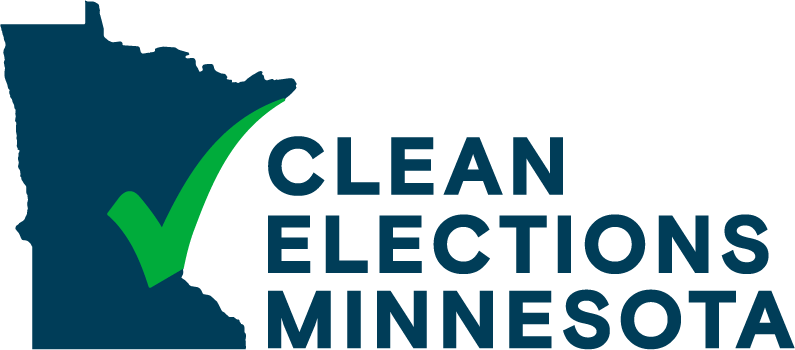H.R. 1, the For the People Act, will make it easier to vote, take big money out of politics, and clean up corruption in government. Among its provisions, the legislation would expand access to voting:
EXPANDS VOTER REGISTRATION
- We don’t have data yet for the 2020 election, but in the 2016 election, nearly 20 percent of people who were eligible but did not vote cited registration hurdles as the main reason for not voting. H.R. 1 would modernize America’s voter registration system and improve access to the ballot box by establishing automatic voter registration (“AVR”), same-day registration (“SDR”), and online voter registration for voters across the country, and ensure that all voter registration systems are inclusive and accessible for people with disabilities. AVR alone could add an estimated 50 million people to the voter rolls, and SDR increases voter turnout by roughly 10 percent.
- H.R. 1 would overturn the Supreme Court’s troubling 2018 decision in Husted v. A. Philip Randolph Institute that allowed Ohio to conduct massive purges from its voter rolls based on non-voting in past elections. Such practices disproportionately target and remove traditionally marginalized people from registration rolls. Voting should not be a “use it or lose it” right.
- Voter ID laws make it harder for low-income, racial and ethnic minorities, the elderly, and people with disabilities to vote. Such voters more frequently have difficulty obtaining an ID, because they cannot afford or cannot obtain the underlying documents that are a prerequisite to obtaining a government-issued photo ID card.
- The 2020 election showed us that voters want and need multiple options to cast their ballot. This includes vote-by-mail, at least 2 weeks of early voting, and in-person voting on Election Day. Early voting reduces long lines on Election Day, reduces the burden on Election Day poll workers, and has the potential to increase turnout and expand the electorate. Even when the pandemic is finally over, we need these reforms in place.
- Nationally, state laws deny 4.5 million citizens the right to vote because of a criminal conviction – 3.2 million of whom are no longer incarcerated. H.R. 1 adopts a simple and fair rule: If you are out of prison and living in the community, you get to vote in federal elections. We all benefit from the successful reentry of formerly incarcerated citizens into our communities. Restoring their voting rights makes clear that they are entitled to the respect, dignity, and responsibility of full citizenship.
- H.R. 1 would be a milestone in the battle against the extreme partisan gerrymandering our country has witnessed in recent years. It requires states to draw congressional districts using independent redistricting commissions that are bipartisan and reflect the demographic diversity of the region. H.R. 1 would establish fair redistricting criteria and ensure compliance with the VRA to safeguard voting rights for communities of color.
When the Supreme Court decided Shelby County v. Holder in 2013, it struck a blow to the Voting Rights Act of 1965 (“VRA”), eliminating preclearance, a crucial stopgap against voter suppression. Preclearance required states with records of racial discrimination to submit all changes in election practices and procedures to the U.S. Department of Justice or a court in Washington, D.C. for approval before the changes could take effect.
Since preclearance was eliminated in 2013, states with records of racial discrimination against voters have enacted laws and policies preventing millions of Americans from exercising their fundamental right to vote. States have purged eligible voters from voter rolls, cut early voting days and hours, implemented strict voter ID laws, and closed hundreds of polling places.
The John Lewis Voting Rights Advancement Act (“H.R.4”) fills the gap Shelby has left and is an essential tool to fight racial discrimination in voting. Our democracy works best when everyone can participate fully, no matter their race or color. H.R.4 seeks to restore protections to our election process and to ensure that all Americans have the same opportunity to exercise their constitutional right to vote.
H.R.4. PREVENTS VOTER SUPPRESSION: COVERAGE FORMULA THAT REFLECTS CURRENT CONDITIONS
Establishes a new coverage formula based on states’ and political subdivisions’ recent history of voting rights violations. H.R.4 applies preclearance to:
- A political subdivision with at least three violations in the past 25 years;
- A state with 10 or more violations, with at least one occurring at the state level in the past 25 years; and
- A state with 15 or more violations at any level within the past 25 years.
- H.R.4 also requires nationwide preclearance for known practices that disproportionately affect communities of color. H.R.4 applies preclearance to states or political subdivisions that:
- Change election methods in areas that are racially, ethnically, or linguistically diverse;
- Redistrict and dilute racial or language minority groups’ vote in areas that are racially, ethnically, or linguistically diverse;
- Redistrict in an area where a racial or language minority group’s population has increased;
- Change the documentation or requirements to register or vote;
- Reduce language assistance; or
- Reduce polling locations in areas that are racially, ethnically, or linguistically diverse.
While most of the VRA applies to the entire country, Section 5 is reserved for specific jurisdictions with the most pervasive patterns of discrimination. The coverage formula was narrowly tailored to combat voting discrimination against minority voters, in particular geographic areas of the country where voter suppression was most acute. The Supreme Court has held that legislation that imposes unique requirements on select states must be justified with a detailed evidentiary record to withstand a constitutional challenge. Thus, legislation like the John Lewis Voting Rights Advancement Act (VRAA) requires a full evidentiary record that directly links evidence of current discriminatory conditions to the jurisdictions covered by Section 5. Simply put, there must be evidence that justifies treating some jurisdictions differently from others.


